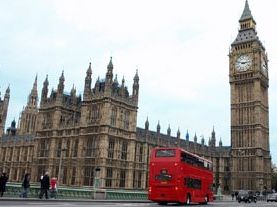As the UK leaves the EU and embarks on a transitionary period due to end on 31 December 2020, the BVRLA is providing regular updates to keep members aware of developments.
Monthly update for members on EU exit developments
Free trade talks: the UK and EU positions
Free trade talks between the UK and EU27 formally started on March 2nd . The first round of talks is complete and at the end of this round the differences between the two sides are serious, to the extent that Michel Barnier, the EU’s chief negotiator commented there were “grave differences”.
These differences are mainly based on the UK’s current position that it will not agree to EU rules on areas such as state aid, environmental and labour laws (‘the level playing field’) and the jurisdiction of the European Court of Justice.
The UK government’s current negotiating approachis centred on the belief that the country must have genuine independence to set its own laws and regulations. It cites an EU- Canada-style free trade deal as its preference. The UK government is aware, and indeed accepts, there will be an economic cost, for example, due to tariffs and administrative barriers. However, it is asserting that political, regulatory and judicial independence is more important than reaching a trade deal.
In addition, the government questions the credibility of several independent studies that point to a long-term economic negative impact for the UK. It thinks that any economic cost will be a one-off event, and that it is not possible to predict so far into the long-term that economic decline is inevitable from a no trade deal exit.
It also thinks that regulatory independence will mean the UK will benefit from being able set the right regulation to encourage the high technology industries of the future to the UK. Furthermore, it argues that the economic upside of regulatory independence is being downplayed by critics.
Regulatory independence, the government argues, will also mean the UK finds it easier to reform its own laws where these are not working, and to do this quickly, instead of needing the agreement of the EU.
On the ‘level playing field’ ministers have argued that not committing the UK to the EU’s standards in the future, does not mean the UK will seek a race to the bottom/deregulate standards. In fact, the government argues, the UK may introduce higher standards than the EU (e.g. pointing to environmental laws such as net zero emissions legislation and the Climate Change Act, 2008).
Next steps for the talks?
Whilst it is expected that there would be a ramp up in political rhetoric, there is a real risk of the trade talks collapsing by the Summer. The UK government has said that a broad outline of a deal must be agreed by June 2020, otherwise it may walk away and focus its energy on domestic preparations for a no trade deal exit.
In addition, the UK government has already legislated to prevent an extension to the current transition period, ending on December 31st2020. There is a hard and fast date for some kind of trade deal to be agreed between the UK and EU27. Enough time is also needed to ensure that Member States can ratify the agreement before the end of the year as well. Both sides disagree whether it is possible to strike a satisfactory deal between now and the end of December.
There is a possibility that the current Covid-19 pandemic may lead to the transition period being extended into 2021. The second round of UK-EU talks were due to start in March but have been put on hold. The current focus is on continuous dialogue on the legal text of a future trade agreement, instead of setting blocks of time every month. However, the UK government’ position remains that the transition period will not be extended, though more and more commentators believe this position is untenable.
What the UK-EU trade talks cover
The sectors/issues that are included in trade talks are:
- Trade in goods
- Services and investment
- Financial services
- Digital
- Capital movements and payments
- Intellectual property
- Public procurement
- Mobility
- Transport
- Energy
- Fishing opportunities
- Global co-operation
- Level playing field for open and fair competition
It is very unlikely a deep trade deal on services will be signed, so we can expect to see ongoing discussion in 2021. It is more likely that a deal on goods can be secured. A useful slide used by Michel Barnier to set out the timetable of talks in 2020 can be viewed here (‘Negotiations on future partnership EU-UK’).
The EU also released its draft trade deal legal text recently (“New Partnership between the European Union and the United Kingdom”). It sets out a range of governance measures between the UK and EU and proposals on a level playing field. The EU continues to insist if the UK wants deep access to the EU’s market, it will need to sign up to these rules. The UK may also set out its own legal text before talks resume.
Other trade deals the UK is negotiating
- The U.K. is also negotiating trade deals with non- EU states as well. Negotiating objectives for talks with the United States have been published (all 184 pages)
- Talks were due to start with Japan in April, and with New Zealand and Australia from May. These are priority countries for the UK in terms of new trade deals. Negotiations continue with 16 other countries including Mexico and Canada.
- At the time of writing, trade deals have been signed with 19 countries (ranging from Chile, Central America, South Korea and Switzerland).




